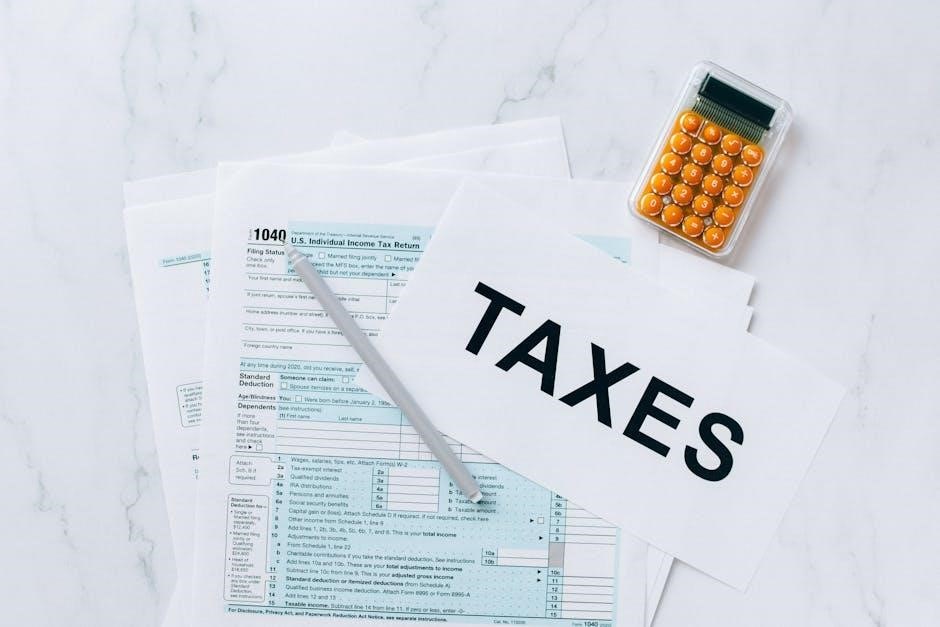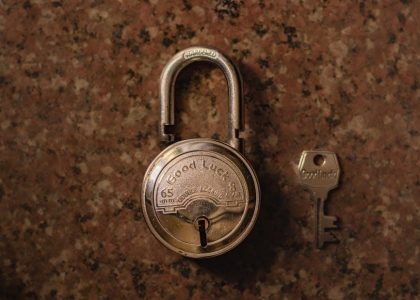The Legal Services Award Pay Guide outlines minimum pay rates, conditions, and compliance requirements for employees and employers in the legal industry, ensuring fair workplace standards.
Definition and Purpose of the Legal Services Award
The Legal Services Award is a modern award that sets out the minimum pay rates, conditions, and entitlements for employees in the legal industry. Regulated under the Fair Work Act 2009, it is established by the Fair Work Commission to ensure fair workplace standards. The award applies to employers and employees in legal services, including law firms, legal practitioners, and related roles. Its primary purpose is to protect employees’ rights, ensure fair compensation, and provide a clear framework for employers to adhere to. The award covers full-time, part-time, and casual employees, outlining minimum wages, allowances, overtime, and penalty rates. It also addresses other employment conditions, such as leave entitlements and workplace flexibility. By setting these standards, the Legal Services Award promotes equity and transparency in the legal sector, ensuring compliance with national employment laws.
Importance of the Legal Services Award in the Legal Industry
The Legal Services Award plays a vital role in ensuring fair and consistent employment standards within the legal industry. It provides a clear framework for employers to follow, safeguarding employees’ rights and entitlements. By setting minimum pay rates, allowances, and conditions, the award helps prevent underpayment and exploitation of workers. It also promotes transparency and accountability, enabling employees to understand their entitlements and employers to comply with legal obligations. The award’s enforcement by the Fair Work Ombudsman ensures adherence to national workplace laws, maintaining trust and integrity in the industry. Its importance extends to fostering a fair and equitable work environment, which is essential for the legal sector’s professionalism and growth. Compliance with the award is crucial for both employers and employees to avoid legal repercussions and uphold workplace integrity.
Brief History and Evolution of the Legal Services Award
The Legal Services Award has a long history of regulating employment conditions in the legal industry, dating back to its establishment under Australia’s industrial relations framework. Over the years, the award has undergone significant updates to reflect changing workplace needs, economic conditions, and legal requirements. Initially designed to standardize pay rates and working conditions, it has evolved to include provisions for part-time and casual employees, allowances, and penalty rates. Recent amendments, such as the 2024 pay rate increases, demonstrate its adaptability to modern workforce demands. The Fair Work Commission regularly reviews and updates the award to ensure it remains relevant and fair, aligning with national workplace laws and promoting equitable employment practices across the legal sector.

Eligibility Criteria for the Legal Services Award
The Legal Services Award applies to employees and employers in the legal industry, covering roles such as solicitors, clerks, and administrative staff. Eligibility is determined by the nature of work performed, with most legal sector workers qualifying. Employers operating in legal services must adhere to the award, ensuring compliance with its pay rates and conditions. The award excludes high-income earners and certain senior roles, as specified. Employees can verify coverage through the Fair Work Ombudsman’s website, which provides tools to identify applicable awards. This ensures fair wages and conditions across the legal workforce, promoting equity and transparency in employment practices;
Which Employees Are Covered Under the Legal Services Award?
The Legal Services Award covers employees in the legal industry, including solicitors, law clerks, legal secretaries, and administrative staff. It applies to full-time, part-time, and casual workers engaged in legal services. Employees such as paralegals, conveyancers, and support staff directly involved in legal work are also covered. However, high-income earners and certain senior executives may be excluded. The award ensures these employees receive minimum pay rates, allowances, and specific working conditions. Employers must verify employee eligibility to avoid non-compliance. Employees can check their coverage using the Fair Work Ombudsman’s tools, ensuring they receive entitlements under the award. This broad coverage ensures fair wages and conditions across the legal sector, promoting workplace equity and transparency.
Which Employers Are Required to Adhere to the Legal Services Award?
Employers in the legal industry, including law firms, legal departments, and businesses providing legal services, must adhere to the Legal Services Award. This applies to organizations engaged in legal practice, such as solicitors, barristers, and conveyancers. Employers of legal support staff, like law clerks and legal secretaries, are also covered. The award is not limited to large firms; it includes small practices and sole practitioners. Employers must ensure compliance with minimum pay rates, allowances, and working conditions outlined in the award. Failure to comply can result in penalties. Employers can use the Fair Work Ombudsman’s resources to verify their obligations and ensure they meet the requirements of the Legal Services Award, avoiding potential breaches and legal actions.
Exemptions and Special Cases Under the Legal Services Award
Certain employers and employees may be exempt from specific provisions of the Legal Services Award under defined circumstances. For instance, high-income employees earning above a threshold set by the Award may not be subject to standard pay provisions. Additionally, employers with approved enterprise agreements or those covered by other registered agreements may have tailored conditions. Special cases include employees with disabilities or those in training arrangements, where flexibility in pay rates or conditions may apply. Employers must consult the Fair Work Ombudsman’s resources to understand exemptions and ensure compliance, as failing to meet requirements can lead to penalties. These provisions ensure the Award remains fair and adaptable to diverse workplace needs within the legal industry.

Understanding Legal Services Award Pay Rates
The Legal Services Award sets minimum pay rates for employees in the legal industry, covering full-time, part-time, and casual roles, with adjustments for experience and qualifications.
Minimum Pay Rates for Full-Time Employees
Full-time employees under the Legal Services Award are entitled to minimum pay rates, which are set to ensure fair compensation for their work. As of the latest updates, these rates have been adjusted to reflect economic conditions and industry standards. Employers are required to pay full-time employees at least the specified minimum rate for their classification, which varies based on experience and qualifications. The pay rates are calculated for a standard 38-hour workweek and are designed to provide a stable income for employees. These rates serve as the foundation for compensation, and employers must adhere to them to maintain compliance with the Award. The Fair Work Ombudsman ensures these rates are accurately reflected in the pay guides, making it easier for employees and employers to understand their obligations and entitlements.
Minimum Pay Rates for Part-Time Employees
Part-time employees under the Legal Services Award are entitled to minimum pay rates proportional to their hours worked. These rates are calculated based on the full-time equivalent, ensuring fair compensation for part-time roles. The pay guides specify the minimum hourly rates for part-time staff, which are adjusted annually to reflect economic changes. Employers must ensure that part-time employees receive at least the stipulated minimum rate for each hour worked, without compromising on entitlements. The Fair Work Ombudsman provides detailed resources to help employers calculate accurate pay rates, ensuring compliance with the Award. This approach guarantees that part-time employees receive consistent and fair wages, maintaining workplace equity and transparency.
Minimum Pay Rates for Casual Employees
Casual employees under the Legal Services Award are entitled to minimum pay rates, which include a casual loading to compensate for the lack of leave entitlements. These rates are clearly outlined in the Fair Work Ombudsman’s pay guides, ensuring transparency and fairness. As of 1 July 2024, the minimum pay rates for casual employees increased by at least 3.75%, reflecting the annual wage review. Employers must ensure they adhere to these rates, which are calculated based on the employee’s role and experience. The pay guides also specify any additional allowances or penalties that may apply. Casual employees should receive accurate payment for all hours worked, with employers referencing the Fair Work Ombudsman’s resources to ensure compliance with the Award’s requirements.
Allowances and Additional Payments Under the Award
Allowances and additional payments under the Legal Services Award are provided to compensate employees for specific work-related expenses or conditions. These may include meal allowances, travel expenses, or payments for working in adverse conditions. The Fair Work Ombudsman’s pay guides detail these allowances, ensuring clarity for both employers and employees. For instance, meal allowances are paid when an employee works beyond standard hours without access to meals. Similarly, travel allowances cover transportation costs for work-related journeys. Employers must accurately calculate and include these payments in employee wages, referencing the Award’s stipulations. These additional payments ensure that employees are fairly compensated for their work-related needs, maintaining compliance with the Legal Services Award’s requirements and fostering a fair work environment. The Fair Work Commission regularly reviews these allowances to align with current economic conditions.
Overtime and Penalty Rates Explained
Overtime and penalty rates under the Legal Services Award are designed to compensate employees for working beyond standard hours or during specific periods. Overtime rates apply when employees work more than 38 hours per week or outside regular working hours. Penalty rates are paid for work on weekends, public holidays, or late-night shifts. These rates are calculated as a percentage of the employee’s base pay rate, ensuring fair compensation for less desirable working conditions. For example, weekend work may attract a 150% or 200% pay rate, while late-night shifts could include a percentage-based penalty. Employers must adhere to these provisions to avoid underpayment claims. The Fair Work Ombudsman enforces these requirements, ensuring compliance and preventing wage underpayment. Regular updates to the Award ensure these rates align with current workplace standards.
How Pay Rates Are Calculated Under the Legal Services Award
Pay rates under the Legal Services Award are calculated based on an employee’s classification level, experience, and hours worked. The Award sets minimum rates for full-time, part-time, and casual employees, with casuals receiving a loading in addition to their base rate. Overtime and penalty rates are applied for work beyond standard hours or during specified periods, such as weekends or public holidays. The Fair Work Commission reviews and updates these rates annually, considering factors like inflation and industry needs. Employers must ensure compliance by referencing the Modern Awards Pay Database or the Fair Work Ombudsman’s Pay Calculator. Accurate calculations are crucial to avoid underpayment claims and ensure fair compensation for all employees covered by the Award.

Compliance with the Legal Services Award
Employers must adhere to minimum pay rates, record-keeping, and employment conditions under the Legal Services Award to ensure fairness and avoid penalties enforced by the Fair Work Ombudsman.
Employer Obligations Under the Legal Services Award
Employers must pay minimum wages, allowances, and penalty rates as specified by the Legal Services Award. They are required to maintain accurate records of hours worked, pay rates, and entitlements for all employees. Employers must ensure compliance with conditions related to overtime, casual loading, and leave entitlements. They are also obligated to provide employees with a copy of the Award or details on how to access it. Failure to meet these obligations can result in penalties and legal action from the Fair Work Ombudsman. Employers must stay informed about updates to the Award and implement changes promptly to avoid non-compliance. Regular audits and consultations with legal or HR experts are recommended to ensure adherence to all requirements.
Record-Keeping Requirements for Employers
Employers under the Legal Services Award must maintain accurate and detailed records of all employees, including their hours worked, pay rates, and entitlements. Records must be kept for a minimum of seven years and be readily accessible for inspection by employees or the Fair Work Ombudsman. Employers are required to provide employees with pay slips within one working day of payment, detailing gross and net pay, deductions, and any allowances. Time sheets and leave balances must also be accurately recorded. Failure to comply with these requirements can result in penalties. Employers are encouraged to use the Fair Work Ombudsman’s resources to ensure their record-keeping systems meet all legal standards. Accurate records help prevent disputes and demonstrate compliance with the Award’s provisions.
Consequences of Non-Compliance with the Legal Services Award
Non-compliance with the Legal Services Award can result in significant legal and financial consequences for employers. Failure to meet minimum pay rates, overtime, or penalty rate requirements may lead to penalties, fines, and legal action. Employers found underpaying staff or breaching award conditions can face civil penalties, with fines exceeding $60,480 per contravention. Additionally, the Fair Work Ombudsman may conduct audits and investigations, leading to reputational damage. Employees may also lodge complaints, seeking back-pay for entitlements owed. Repeat offenders risk higher penalties and potential criminal charges for wage theft. Employers are urged to ensure accurate record-keeping and compliance to avoid these consequences. The Fair Work Ombudsman actively enforces the Legal Services Award, emphasizing the importance of adherence to workplace laws.

Enforcement of the Legal Services Award
The Fair Work Ombudsman enforces the Legal Services Award through investigations, audits, and legal actions, ensuring employers comply with pay rates and conditions, safeguarding workplace fairness.
Role of the Fair Work Ombudsman in Enforcing the Award
Fair Work Ombudsman enforces the Legal Services Award by conducting workplace audits, investigating complaints, and taking legal actions against non-compliant employers.
Recent Cases and Enforcement Actions
The Fair Work Ombudsman has recently taken legal action against employers for underpayment of wages under the Legal Services Award. In one case, a legal firm faced penalties for failing to pay a paralegal the minimum wage. Another case involved a business that underpaid 20 workers, resulting in significant repayment orders. These enforcement actions highlight the Ombudsman’s commitment to ensuring compliance with the Award. Employers found in breach face costly penalties and reputational damage. The Ombudsman also conducts regular audits to identify and address non-compliance, protecting employees’ rights and maintaining fair workplace standards. These cases serve as a reminder of the importance of adhering to the Legal Services Award’s requirements.
Penalties for Breaching the Legal Services Award
Breaching the Legal Services Award can result in significant penalties. Employers found non-compliant may face civil penalties, repayment orders, and legal action. The Fair Work Ombudsman enforces these penalties, which can include fines and compensation to affected employees. Additionally, companies may face reputational damage. Repeat offenders risk higher penalties, emphasizing the importance of compliance. These measures ensure fair workplace standards and protect employees’ rights under the Award.

Recent Updates to the Legal Services Award
The Legal Services Award was updated in 2024, introducing a 3.75% pay rate increase for all covered employees, ensuring fair minimum wages for full-time, part-time, and casual workers.
2024 Pay Rate Increases Under the Legal Services Award
As of 1 July 2024, the Legal Services Award implemented a 3.75% pay rate increase for all covered employees, ensuring fair minimum wages. This adjustment applies to full-time, part-time, and casual workers, reflecting economic conditions and industry needs. Employers must adhere to these updated rates, including casual loading for casual employees. The Fair Work Commission reviews and sets these rates annually, considering factors like inflation and sector requirements. This increase ensures employees receive competitive pay, aligning with contemporary workplace standards. For detailed information, refer to the Fair Work Ombudsman’s pay guide and resources, which outline the updated rates and compliance requirements.
Key Changes in the 2024 Legal Services Award Update
The 2024 Legal Services Award update introduced several key changes to align with current workplace standards. A 3.75% pay rate increase was implemented, affecting minimum wages for full-time, part-time, and casual employees. Casual loading rates were also adjusted to ensure compliance with the updated pay structure. Additionally, the award clarified penalty rates for work performed outside standard hours, providing clearer guidelines for employers. Allowances for specific roles, such as paralegals and legal clerks, were revised to reflect industry demands. Overtime calculations were also simplified, ensuring fair compensation for extended working hours. These changes aim to enhance transparency and fairness in the legal sector, ensuring employees receive accurate pay and employers maintain compliance with legal requirements.
How the 2024 Updates Impact Employees and Employers
The 2024 Legal Services Award updates significantly impact both employees and employers. Employees benefit from increased minimum pay rates, ensuring fairer compensation for their work. The 3.75% pay rise enhances wage growth, particularly for full-time, part-time, and casual workers. Casual employees also see adjustments in loading rates, reflecting their unique work arrangements. Clarity on penalty rates and overtime calculations provides employees with clearer expectations about their earnings. Employers, while required to adapt to higher wage costs, gain transparency in compliance obligations. The updates also prompt employers to review payroll systems to avoid underpayment risks. Overall, the changes aim to balance fair compensation for employees with manageable compliance for employers, fostering a more equitable and regulated workplace environment in the legal sector.

Tools and Resources for Legal Services Award Compliance
The Fair Work Ombudsman’s Pay Guide and Modern Awards Pay Database provide accurate pay rate information. The Fair Work Pay Calculator helps determine correct pay rates for employees, ensuring compliance with the Legal Services Award.
Fair Work Ombudsman’s Pay Guide and Resources
The Fair Work Ombudsman’s Pay Guide is a comprehensive resource that outlines minimum wages, allowances, and penalty rates under the Legal Services Award. It also includes detailed information on compliance requirements, record-keeping standards, and the calculation of overtime rates. Employers can access this guide to ensure they are meeting their legal obligations, while employees can use it to verify their pay entitlements; The guide is regularly updated to reflect changes in pay rates and conditions, ensuring that all stakeholders have access to accurate and current information. Additionally, the Fair Work Ombudsman provides educational resources and tools to help both employers and employees understand their rights and responsibilities under the award.
Modern Awards Pay Database for Legal Services
The Modern Awards Pay Database is an essential resource for employers and employees in the legal sector, providing detailed information on minimum pay rates, allowances, and penalty rates under the Legal Services Award. This database is regularly updated to reflect changes in pay rates and conditions, ensuring accuracy and compliance with current regulations. Users can search by award or occupation to find specific pay rates, making it a valuable tool for verifying entitlements. The database also includes historical data, allowing users to track changes over time. By utilizing this resource, employers can ensure they are meeting their legal obligations, while employees can confirm their pay is correct. It is accessible through the Fair Work Ombudsman’s website, making it a convenient and reliable source for staying informed about pay rates in the legal industry.
Using the Fair Work Pay Calculator for Accuracy
The Fair Work Pay Calculator is a reliable tool for calculating minimum pay rates, allowances, and penalty rates under the Legal Services Award. Available on the Fair Work Ombudsman’s website, it helps employers and employees ensure compliance with current pay rates. By inputting details such as occupation, hours worked, and employment type, users can instantly access accurate pay information. This tool is especially useful for verifying entitlements, resolving disputes, and ensuring transparency in pay calculations. It also covers overtime and casual loadings, making it a comprehensive resource for legal industry workplaces. Regularly updated, the Pay Calculator reflects the latest changes in the Legal Services Award, ensuring users always have the most current information at their fingertips. This resource is indispensable for maintaining fairness and accuracy in workplace payments.
The Legal Services Award ensures fair pay and conditions, adapting to industry needs. Employers must stay informed to maintain compliance and support workplace fairness.
The Legal Services Award Pay Guide provides a comprehensive overview of minimum pay rates, allowances, and conditions for employees in the legal industry. It outlines eligibility criteria for both employers and employees, ensuring compliance with federal workplace laws. The guide includes detailed information on full-time, part-time, and casual employee pay rates, as well as overtime and penalty rates. Employers are required to adhere to these standards, with specific record-keeping obligations to maintain compliance. The Fair Work Ombudsman plays a crucial role in enforcing the award and providing resources, such as the Pay Calculator, to help employers and employees understand their rights and responsibilities. Regular updates, such as the 2024 pay rate increases, ensure the guide remains relevant and fair. This resource is essential for promoting transparency and fairness in the legal services sector.
Future Trends in Legal Services Award Pay Rates
Future trends in Legal Services Award pay rates are expected to focus on aligning with inflation, economic conditions, and industry needs. The Fair Work Commission will continue to review and adjust rates annually to ensure fairness and sustainability. With the rise of technology in legal services, there may be shifts in how roles are classified and compensated. Increased emphasis on flexible work arrangements could influence part-time and casual pay structures. Additionally, there will be a stronger focus on compliance and transparency, with employers leveraging digital tools to meet award requirements. As the legal sector evolves, pay rates will likely reflect the changing nature of work, ensuring equitable compensation for all employees.





